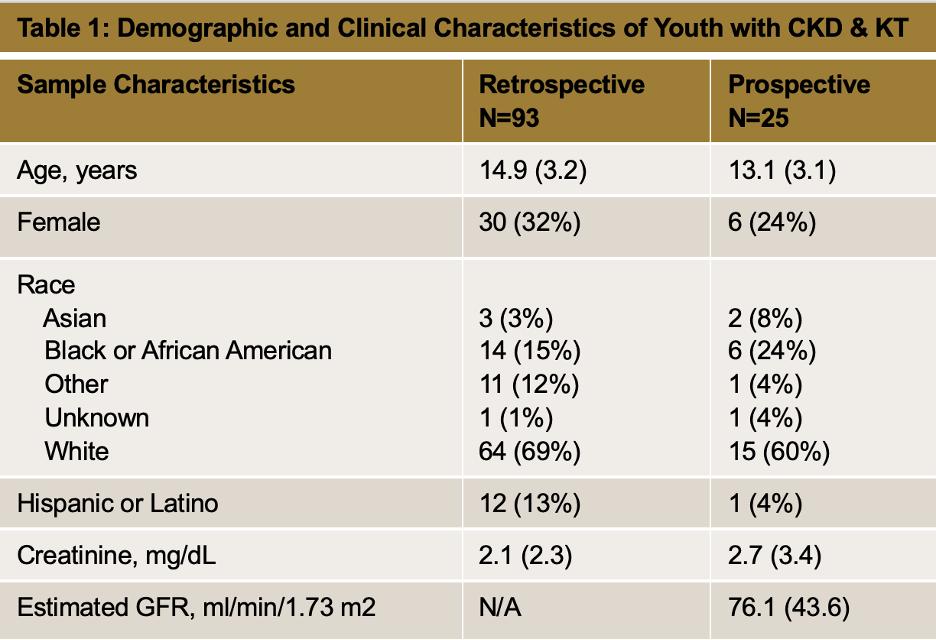Mental Health
Session: Mental Health 1
548 - The Impact of Generalized Anxiety Disorder 7 (GAD-7) Screening on the Diagnosis of Anxiety Disorder in Youth with Chronic Kidney Disease
Sunday, May 5, 2024
3:30 PM - 6:00 PM ET
Poster Number: 548
Publication Number: 548.1736
Publication Number: 548.1736

Kylee B. Church (she/her/hers)
Student
Wake Forest School of Medicine of Wake Forest Baptist Medical Center
High Point, North Carolina, United States
Presenting Author(s)
Background: Anxiety in patients with chronic kidney disease (CKD) and kidney transplant (KT) can adversely affect treatment adherence and health outcomes. Current guidelines recommend primary care screening for anxiety in youth beginning at eight years old, however this is not standard practice in the subspecialty setting. The true prevalence of anxiety disorders in pediatric KT recipients and youth with CKD is unclear. Implementation of regular anxiety screening of youth with CKD and KT may improve diagnosis of anxiety over diagnoses made with clinical assessments alone.
Objective: Using the GAD-7 will increase the identification of anxiety disorders in youth with CKD and KT compared to retrospectively identified anxiety disorders.
Design/Methods: This was a pilot study of youth 8-18 years old with CKD or KT identified by ICD-10 codes. Retrospective anxiety prevalence was estimated in the study population by obtaining electronic health record (EHR) data using biomedical informatics scripts from patients who had ICD-10 code-identified anxiety disorders from 6/01/22–5/31/23. To prospectively screen for anxiety, the GAD-7 was administered to youth aged 8–18 years old with CKD or KT from 5/31/23–07/13/23 in a pediatric nephrology clinic at a single center. Patients seen for an initial visit and those with non-English preferred language were excluded. Demographics were obtained via EHR for both groups (Table 1). GAD-7 scores were calculated and used to categorize patients as minimal (0–4), mild (5–9), moderate (10–14), or severe anxiety (15–21). Positive screen was defined as score >8. Categorical variables were compared using the Chi-squared test.
Results: Of 93 participants in the retrospective analysis, 9.7% had an ICD-10 code for anxiety disorders. In the prospective screening group of 25 participants, 28% had a positive GAD-7 screen (Figure 1). Of the 25 participants screened, 7 had KT (Figure 2). There was no significant difference in GAD-7 screening results by stage of CKD (p=0.26) or in those with KT (p=0.57).
Conclusion(s): Using GAD-7, nearly a third of our population screened positive for anxiety. This prevalence is higher than the retrospective group which reflects current practice. By implementing regular screening, we identified those with anxiety that may not otherwise be detected which allowed for referral for mental health evaluation. Further investigation is warranted in a larger study population to determine effective anxiety screening intervals and inform development of a multi-disciplinary care team that includes mental and behavioral health services for youth with CKD and KT.

.png)
.png)
